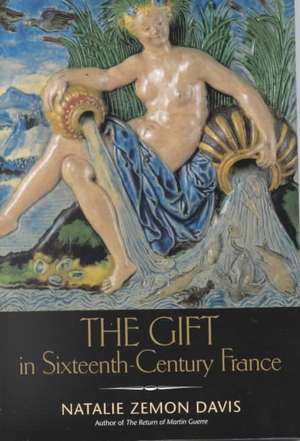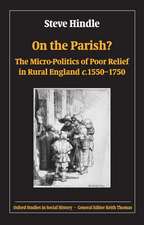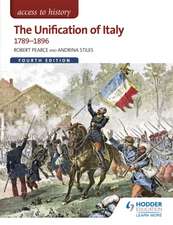The Gift in Sixteenth-Century France: Curti Lecture Series
Autor Natalie Zemon Davisen Limba Engleză Paperback – 2 oct 2000
Must a gift be given freely? How can we tell a gift from a bribe? Are gifts always a part of human relations—or do they lose their power and importance once the market takes hold and puts a price on every exchange? These questions are central to our sense of social relations past and present, and they are at the heart of this book by one of our most interesting and renowned historians.
In a wide-ranging look at gift giving in early modern France, Natalie Zemon Davis reveals the ways that gift exchange is crucial to understanding alliance and conflict in family life, economic relations, politics, and religion. Moving from the king’s bounty to the beggar’s alms, her book explores the modes and meanings of gift giving in every corner of sixteenth-century French society. In doing so, it arrives at a new way of considering gifts—what Davis calls "the gift register"—as a permanent feature of social relations over time. Gift giving, with its own justifications and forms in different periods, can create amity or lead to quarrels and trouble. It mixes the voluntary and the obligatory, with interested bribery at one extreme and inspired gratuitousness at the other.
Examining gifts both ethnographically (through archives, letters, and other texts) and culturally (through literary, ethical, and religious sources), Davis shows how coercive features in family life and politics, rather than competition from the market, disrupted the gift system. This intriguing book suggests that examining the significance of gifts can not only help us to understand social relations in the past, but teach us to deal graciously with each other in the present.
| Toate formatele și edițiile | Preț | Express |
|---|---|---|
| Paperback (1) | 189.14 lei 6-8 săpt. | |
| University of Wisconsin Press – 2 oct 2000 | 189.14 lei 6-8 săpt. | |
| Hardback (1) | 685.13 lei 31-37 zile | |
| OUP OXFORD – 8 noi 2000 | 685.13 lei 31-37 zile |
Preț: 189.14 lei
Nou
Puncte Express: 284
Preț estimativ în valută:
36.20€ • 39.30$ • 30.40£
36.20€ • 39.30$ • 30.40£
Carte tipărită la comandă
Livrare economică 23 aprilie-07 mai
Preluare comenzi: 021 569.72.76
Specificații
ISBN-13: 9780299168841
ISBN-10: 0299168840
Pagini: 200
Dimensiuni: 152 x 229 x 18 mm
Greutate: 0.29 kg
Ediția:1
Editura: University of Wisconsin Press
Colecția University of Wisconsin Press
Seria Curti Lecture Series
ISBN-10: 0299168840
Pagini: 200
Dimensiuni: 152 x 229 x 18 mm
Greutate: 0.29 kg
Ediția:1
Editura: University of Wisconsin Press
Colecția University of Wisconsin Press
Seria Curti Lecture Series
Recenzii
"Some of us go to enormous lengths to find the gift that will exactly convey all the nuances of a relationship. We hate bribery and, though we cherish the idea of a free gift, we also hate ingratitude. For us this book itself is the perfect gift. A superb study of social life in 16th century France, it is a model of historical anthropology."—Mary Douglas, author of Purity and Danger
Notă biografică
Natalie Zemon Davis is Henry Charles Lea Professor of History emerita at Princeton University and is currently adjunct professor of history, anthropology, and medieval studies and a senior fellow in the Centre for Comparative Literature at the University of Toronto. Her many books include The Return of Martin Guerre and Women on the Margins: Three Seventeenth-Century Lives.
Descriere
Must a gift be given freely? How can we tell a gift from a bribe? Are gifts always a part of human relations—or do they lose their power and importance once the market takes hold and puts a price on every exchange? These questions are central to our sense of social relations past and present, and they are at the heart of this book by one of our most interesting and renowned historians.
In a wide-ranging look at gift giving in early modern France, Natalie Zemon Davis reveals the ways that gift exchange is crucial to understanding alliance and conflict in family life, economic relations, politics, and religion. Moving from the king’s bounty to the beggar’s alms, her book explores the modes and meanings of gift giving in every corner of sixteenth-century French society. In doing so, it arrives at a new way of considering gifts—what Davis calls "the gift register"—as a permanent feature of social relations over time. Gift giving, with its own justifications and forms in different periods, can create amity or lead to quarrels and trouble. It mixes the voluntary and the obligatory, with interested bribery at one extreme and inspired gratuitousness at the other.
Examining gifts both ethnographically (through archives, letters, and other texts) and culturally (through literary, ethical, and religious sources), Davis shows how coercive features in family life and politics, rather than competition from the market, disrupted the gift system. This intriguing book suggests that examining the significance of gifts can not only help us to understand social relations in the past, but teach us to deal graciously with each other in the present.
























